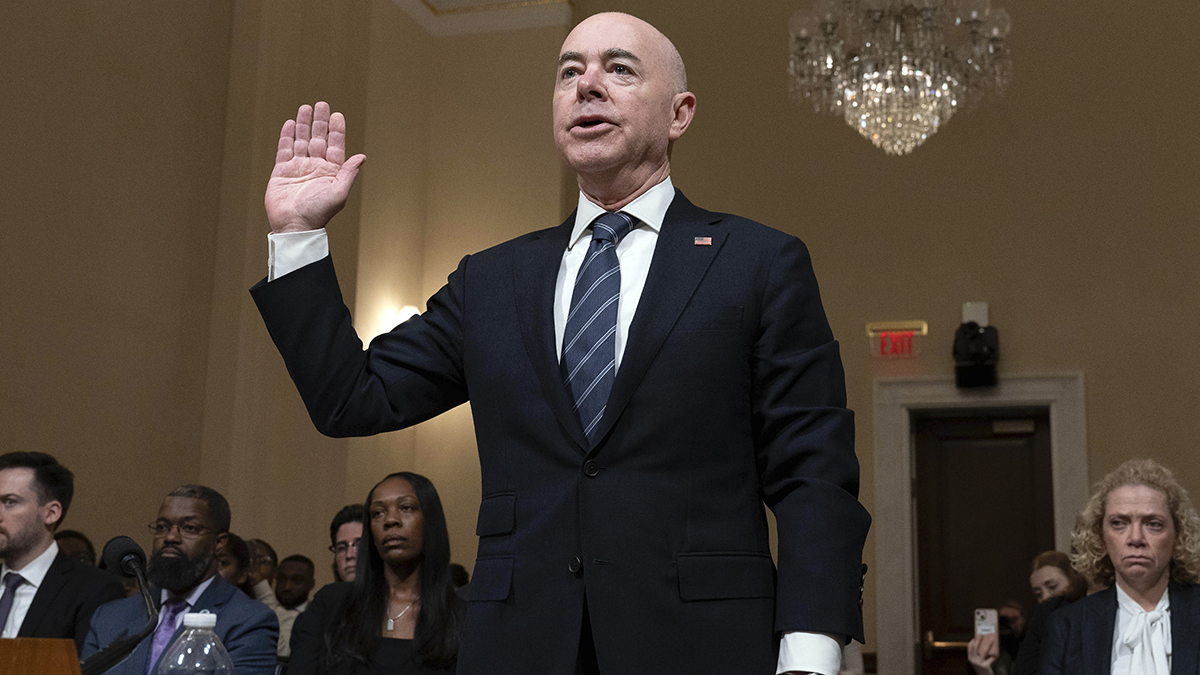The Justice Department and attorneys general in six states and Washington, D.C., filed a lawsuit Tuesday challenging the proposed $11 billion merger between American Airlines and U.S. Airways, while at the same time possibly throwing AA's bankruptcy process into disarray. (Read the lawsuit here.)
They said the proposed merger to create the world's largest airline would "substantially lessen competition for commercial air travel in local markets throughout the United States and result in passengers paying higher air fares and receiving less service."
"The Department of Justice is saying that the American people deserve better. This transaction would result in consumers paying the price -- in higher airfares, higher fees and fewer choices," Attorney General Eric Holder said in a written statement.
The Justice Department had been expected to pressure American and US Airways into giving up some takeoff and landing slots at Reagan National Airport outside Washington, where they stood to be the dominant carrier with 63 percent of nonstop routes and 69 percent of the slots. Instead, the government's challege was much more broad and they argued that the merger would hurt consumers around the country by eliminating a competitor on many routes.
Fort Worth, Texas-based American Airlines and Tempe, Ariz.-based US Airways announced their plans in February to create a company with 6,700 daily flights and annual revenue of approximately $40 billion. A bankruptcy judge in New York was expected to approve American Airlines' reorganization plan on Thursday, based in large part on the merger with US Airways. If the merger is delayed it could throw American Airlines' bankruptcy recovery into upheaval.
According to the lawsuit, American and US Airways compete directly on more than 1,000 routes. Eliminating this head-to-head competition, the suit says, would give the merged airline the incentive and ability to raise air fares. It also says the vast majority of domestic airline routes are already highly concentrated.
"We and our counterparts at US Airways have been working with the DOJ staff for months to ensure that they had an informed view of the merger. We have maintained that the merger is complementary (only 12 overlapping routes), that it provides significant customer benefits and that it enhances competition in the airline industry," said American's chief executive Tom Horton in a letter mailed to employees Tuesday.
U.S. & World
"Since the DOJ has formed a contrary view, the matter will now be settled by the courts. The DOJ has filed a lawsuit in federal district court to enjoin the proposed merger. We and US Airways will vigorously defend our position," he said.
Horton added that the court process will likely take several months.
In a joint statement released Tuesday afternoon, both American and US Airways said they plan to "mount a vigorous and strong defense to the U.S. Department of Justice's effort to block their proposed merger" and that they "believe the DOJ is wrong in its assessment of our merger."
CNBC's Phil LeBeau tweeted the following message, based on a letter from USAir CEO Doug Parker, Tuesday afternoon.
NEW: USAir CEO Parker in letter to employees, "the companies no longer expect the merger to close during the third quarter." — Phil LeBeau (@Lebeaucarnews) August 13, 2013
The merger, if eventually approved, would result in four carriers, American, United, Delta and Southwest, controlling 80 percent of the U.S. commercial air travel market. All companies would have been the product of mergers since 2008.
According to CNBC, the six states joining the suit are Texas, Arizona, Florida, Pennsylvania, Tennessee and Virginia. The District of Columbia also joined the action.
Texas Attorney General Greg Abbott released the following statement Tuesday morning:
Today’s legal action was prompted by the State’s concerns about the potential for reduced airline service to several of Texas’ smaller airports that are currently served exclusively by American Airlines and American Eagle flights. In recent years, U.S. Airways has pursued a “capacity discipline” strategy, a business model that relies upon substantial reductions in both service and capacity – a phenomenon that has followed each significant legacy airline merger in recent years. If this strategy is continued when U.S. Airways’ executives take over leadership at the new American Airlines, some areas in rural Texas could see their travel options reduced as a result of the merger.
American Airlines and U.S. Airways compete directly on thousands of heavily traveled nonstop and connecting routes, including nearly 200 routes beginning or ending in Texas cities. According to the State’s antitrust complaint, the proposed merger would result in decreased competition, higher airfares and fees, reduced service and downgraded amenities. The dollar impact nationwide could exceed $100 million a year. (Read the entire statement here.)
CNBC reports US Airways shares sank 9 percent in morning trading after news of the lawsuit began to spread. AMR shares were taken off the New York Stock Exchange shortly after the company filed for bankruptcy protection in late 2011 but still trade over the counter; they were down $2.31, or 40 percent, to $3.50.
A spokesman for US Airways told NBC 5 DFW they had no immediate comment.
NBC's Pete Williams, Scott Gordon and the Associated Press contributed to this report.



